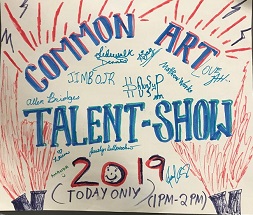Lent 1B, 18 February 2024. The Very Rev. Pamela L. Werntz
- Genesis 9:8-17. I will remember my covenant.
- 1 Peter 3:18-22. He was put to death in the flesh, but made alive in the spirit.
- Mark 1:9-15. And the Spirit immediately drove him out into the wilderness.
O God of the spirit, grant us the wisdom, the strength and the courage to seek always and everywhere after truth, come when it may, and cost what it will.
We have entered the season of Lent in our liturgical year. For those of you who are newish to Emmanuel, I want you to know that, in my view, this is the season that most closely aligns with the spirituality and the ethos of Emmanuel Church. We see the sin in the world; that is, we see so many ways in which the mark of Love is missed. (The Biblical definition of sin is missing the mark.) We know our need for mercy. “We acknowledge and bewail our manifold sins and wickedness, which we [and others] have from time to time most grievously have committed,” as the Rite 1 Confession goes. The season of Lent, a time for self-examination and repentance, feels made for us. And you know that’s good, because it’s not fair for extroverts to get all of the holidays! Continue reading


 Two weeks ago, I wrote about my “silliness” skill and my ability to make others feel comfortable being goofballs. Then I spoke to a friend of mine who also has this skill. From her perspective, the skill isn’t just about making others feel comfortable being playful, but also about making others feel more comfortable about their insecurities. She explained that when we heighten and exaggerate our own insecurities, bringing them to a “ten,” the insecurities become a lot less intimidating and a lot more ridiculous, evoking more laughter and less anxiety. For example, I tend to be a perfectionist, a behavior rooted in my insecurity of not being good enough. When I notice I’m feeling perfectionistic, I exaggerate the statement—“If I don’t have straight A’s, I’m not trying hard enough” becomes “I MUST score an ‘A’ on EVERY assignment or else I don’t deserve to be in school at all!” This statement is accompanied by a deep, scratchy, commanding voice and dramatic, clutching hand gestures. With this insecurity externalized and heightened, I’m able to see what parts of it are ridiculous and illogical; I can see how these perfectionistic thoughts, which are so natural and constant in my mind, don’t actually serve me. It was empowering for me to recognize that my “silliness” skill has broader implications than I thought. It’s not only about helping others feel comfortable being playful; it’s also about helping others feel comfortable and safe enough to confront their insecurities, hopefully to then view them with a fresh and less anxious perspective.
Two weeks ago, I wrote about my “silliness” skill and my ability to make others feel comfortable being goofballs. Then I spoke to a friend of mine who also has this skill. From her perspective, the skill isn’t just about making others feel comfortable being playful, but also about making others feel more comfortable about their insecurities. She explained that when we heighten and exaggerate our own insecurities, bringing them to a “ten,” the insecurities become a lot less intimidating and a lot more ridiculous, evoking more laughter and less anxiety. For example, I tend to be a perfectionist, a behavior rooted in my insecurity of not being good enough. When I notice I’m feeling perfectionistic, I exaggerate the statement—“If I don’t have straight A’s, I’m not trying hard enough” becomes “I MUST score an ‘A’ on EVERY assignment or else I don’t deserve to be in school at all!” This statement is accompanied by a deep, scratchy, commanding voice and dramatic, clutching hand gestures. With this insecurity externalized and heightened, I’m able to see what parts of it are ridiculous and illogical; I can see how these perfectionistic thoughts, which are so natural and constant in my mind, don’t actually serve me. It was empowering for me to recognize that my “silliness” skill has broader implications than I thought. It’s not only about helping others feel comfortable being playful; it’s also about helping others feel comfortable and safe enough to confront their insecurities, hopefully to then view them with a fresh and less anxious perspective.